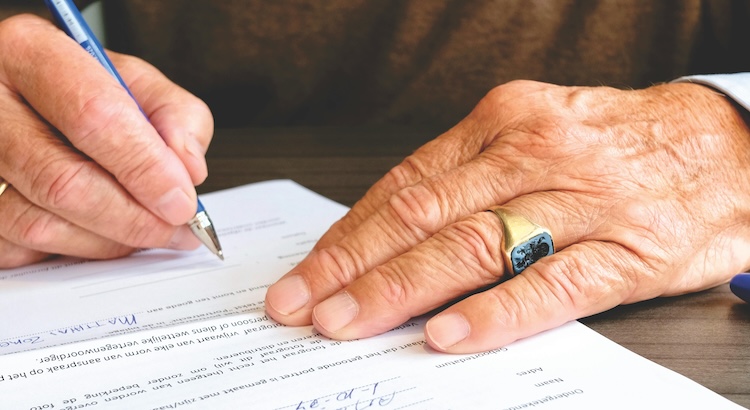Everything You Need to Know About Legal Transcription
Accurate transcription is vital in the legal field. Every court case, deposition, or client meeting relies on clear records to support fact-checking, proper documentation, and prevent misunderstandings. This guide explains legal transcription, the key steps in the process, and advice on choosing the right transcription service for legal needs.
What Is Legal Transcription?
Legal transcription is the process of turning spoken words or recorded audio and video from legal matters into written text. Transcribed content may include court hearings, depositions, attorney-client meetings, or witness interviews.
These final documents are essential for:
- Case preparation
- Evidence review
- Filing appeals
- Recordkeeping and archiving
Common Types of Legal Transcripts
Legal transcription covers a range of documents. Some of the most common types include:
- Court Transcripts
- Trial Proceedings – Multi-day events, involving judges, lawyers, and witnesses.
- Hearings and Motions – Shorter but still require exact records.
- Depositions
- Sworn statements outside of court from witnesses or involved parties.
- Verbatim transcription is crucial, as every word or hesitation could affect the case.
- Attorney-Client Interviews
- Confidential meetings to create or review strategy.
- Transcription must follow high standards for privacy and data security.
- Witness Statements
- Phone calls or interviews where a witness gives information relevant to a case.
- Identifying each speaker and providing precise wording is essential.
- Administrative Hearings
- Legal issues handled outside court, like in licensing boards or disciplinary hearings.
Why Accuracy and Security Matter in Legal Transcription
- Legal Impact
- Small errors—like a missed word—can change the meaning of a transcript. Mistakes may result in decisions being challenged or even overturned (National Center for State Courts, 2021).
- Confidentiality & Compliance
- Legal transcripts often include sensitive or privileged information.
- Services must protect privacy and follow rules such as the GDPR or HIPAA for medical content.
- Professional Standards
- Law firms depend on accurate records to uphold their ethical standards and protect clients.
The Legal Transcription Process
While details may differ by provider, legal transcription usually follows these steps:
- Recording
- Audio or video is captured using digital recorders, court reporters, or conferencing systems.
- Clean audio with limited background noise ensures the best results.
- File Submission
- Clients upload recordings to a secure site or send them directly to the service provider.
- Files are encrypted to guard against unauthorized access.
- Transcription and Editing
- Professional transcriptionists listen, type, and label speakers.
- Editors proofread and ensure legal terms and formatting are correct.
- Quality Assurance
- Senior editors or quality teams review the transcript for any mistakes or unclear parts.
- Secure Delivery
- Finished transcripts are sent using encrypted channels, available in multiple file formats if needed.
Privacy and Security Requirements
- Confidentiality Agreements (NDAs)
- Providers must agree to Non-Disclosure Agreements to keep your data safe.
- Data Encryption
- End-to-end encryption is key when transferring and storing files.
- Secure Storage
- Reliable companies use firewalls and secure servers; they may also auto-delete files after a certain period.
- Regulatory Compliance
- Transcription must meet laws such as GDPR and HIPAA if health information is discussed.
How to Choose a Legal Transcription Service
- Legal Knowledge
- Transcribers should understand legal terms and court processes.
- Speaker Identification
- Recordings often have multiple speakers; choose a provider skilled at using clear speaker tags.
- Turnaround Time
- Deadlines are strict in legal work. Pick a service with quick or guaranteed turnaround and rush options.
- Quality Assurance
- Ask about editing and proofreading services to ensure accuracy.
- Transparent Pricing
- Understand their pricing for legal transcription, including any extras like rush jobs or timestamps.
- Security Protocols
- Check for secure online platforms, encryption standards, and privacy certifications.
- Customer Support
- Support should be available around the clock, especially for urgent or time-sensitive cases.
Why Choose GoTranscript for Legal Transcription?
GoTranscript is a proven partner for legal professionals. Here’s how we support the legal sector:
- Transcribers trained in legal language and confident with multi-speaker situations.
- Built-in quality assurance ensures accuracy at every step.
- Strict confidentiality—using encrypted channels, firewalls, and signing NDAs.
- Fast and flexible delivery, including expedited options for urgent needs.
- Clear, upfront pricing with no hidden fees for legal content or extra speakers.
Explore our legal transcription services to see how we ensure top-quality, secure, and efficient solutions for legal cases.
Final Thoughts
Legal transcription is more than typing words—it demands accuracy, security, and careful attention to detail. Errors can affect legal outcomes, and lapses in privacy can put clients at risk.
By understanding the main types of legal transcripts, the value of accuracy, and the need for strict data security, you can choose a service that fits your needs. For depositions, interviews, or court transcriptions, GoTranscript provides reliable solutions to maintain professionalism and confidentiality throughout every case.



















 Verified Order
Verified Order